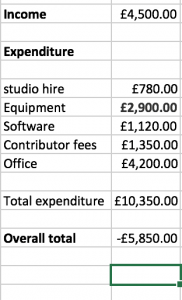Lucy Mithcell is a post-production sound supervisor for a wide variety of clients from the BBC to commercial companies. Her lecture was based on the concept of doing a mix for a TV drama or documentary which despite not being the most relevant for my project was interesting and there was still things that could be taken from this.
In terms of making sure that time isn’t wasted she emphasised the need for setting up the studio before the ‘talent’ hasn’t arrived so that time isn’t wasted and that no one is annoyed, meaning that preamps, headphone levels and talkback are all checked , this also applies to us in the studio as we should not be wasting peoples time. The next relevant thing is the music, as she stressed that the music should be thought about carefully and the usage of it should only be applied when it is relevant and this also applies to the radio piece that I’m producing. She also stressed the need for a paint by numbers approach of doing things in a logical order to ensure that everything is done and again I would say that this is relevant and can be easily applied to what we’re doing.
Finally, she spoke about how to get into the industry by building up relationships and in turn, this will build up trust and as a result, lead to more jobs coming your way, she also stressed the importance of doing work experience in the relevant area and making the most of this by being likeable, knowing when to be quiet etc. She also said that is much easier to start out by working for a smaller company and then going freelance and that in the area of sound supervising runners are starting jobs
